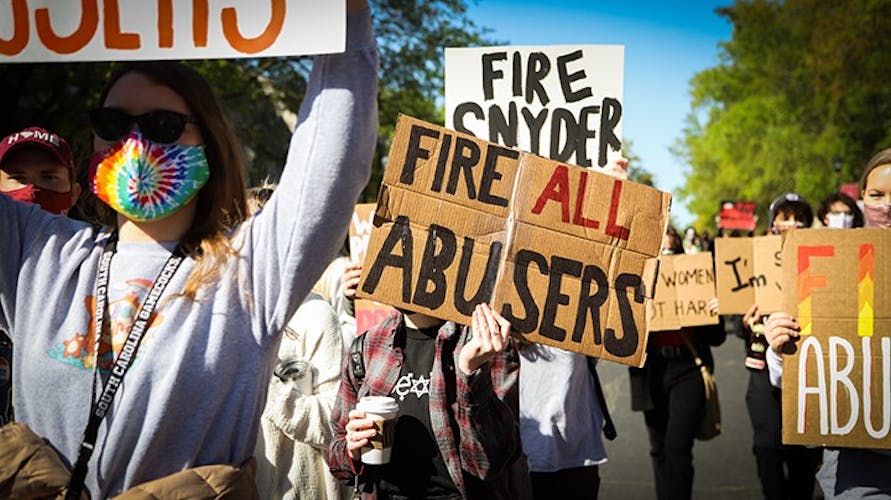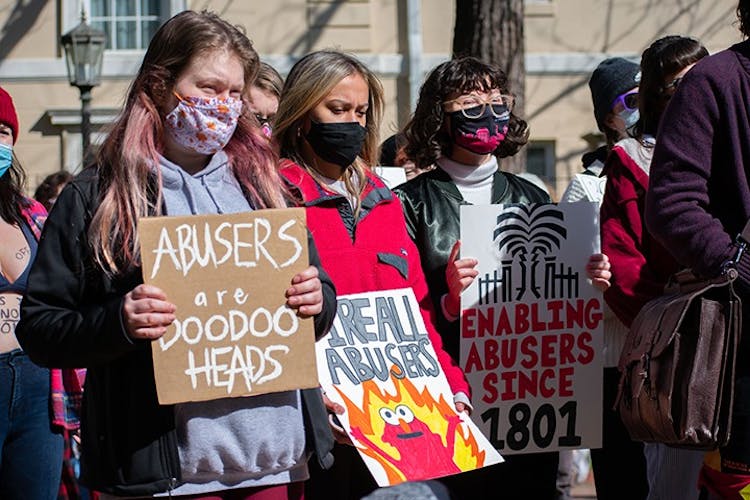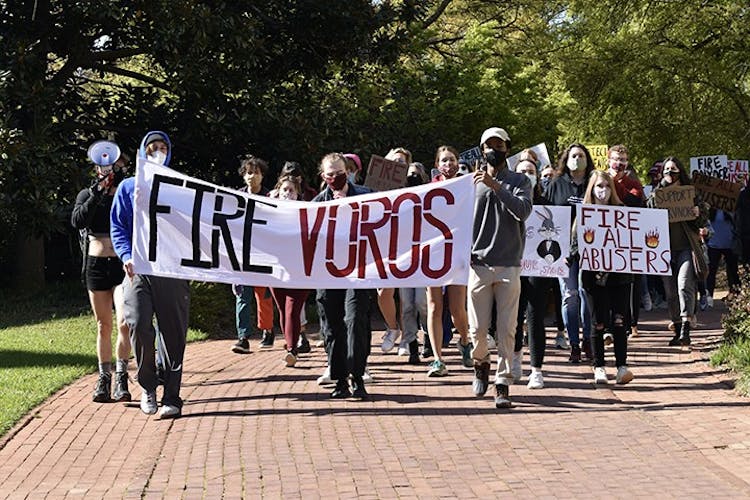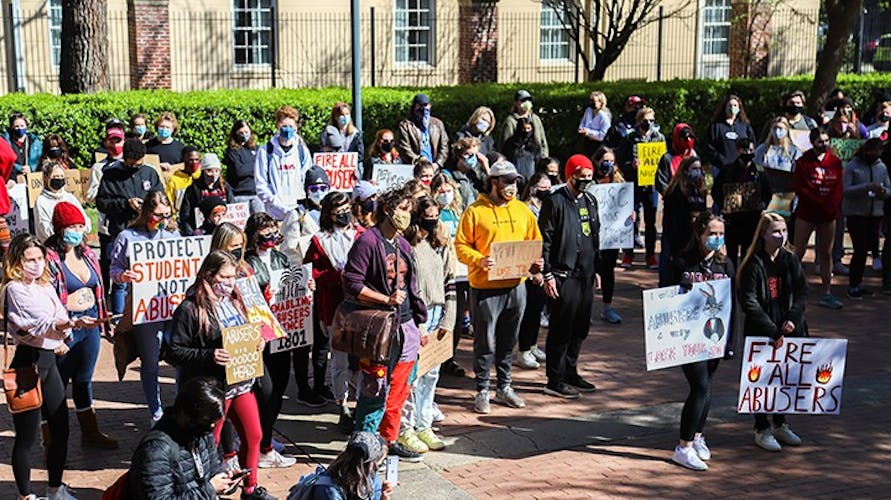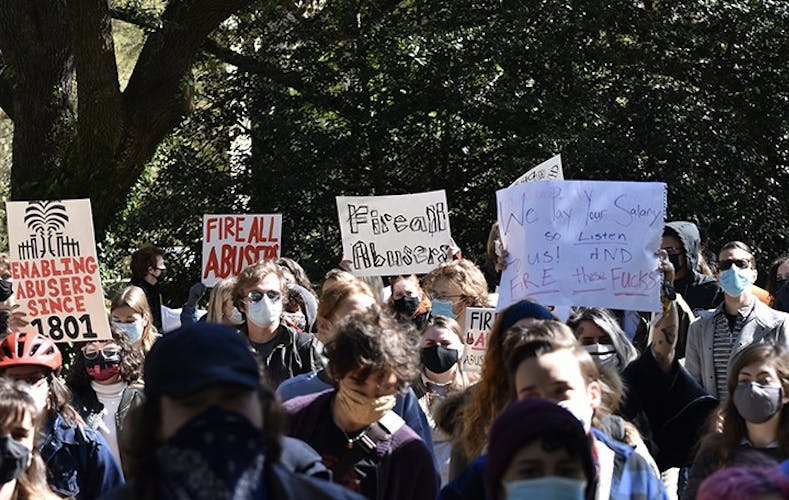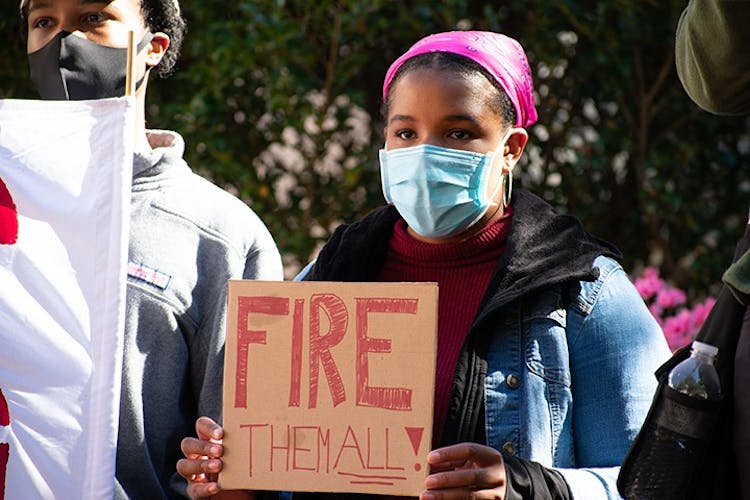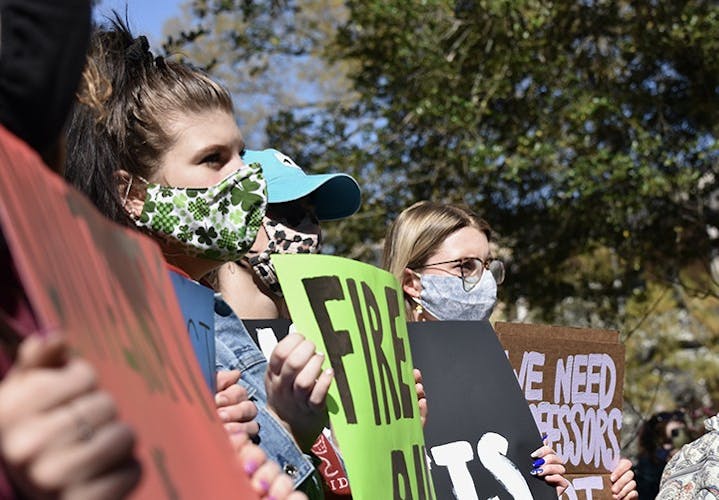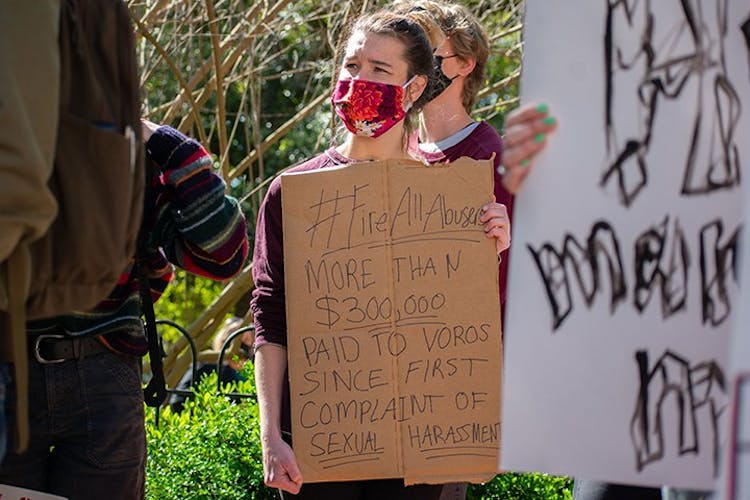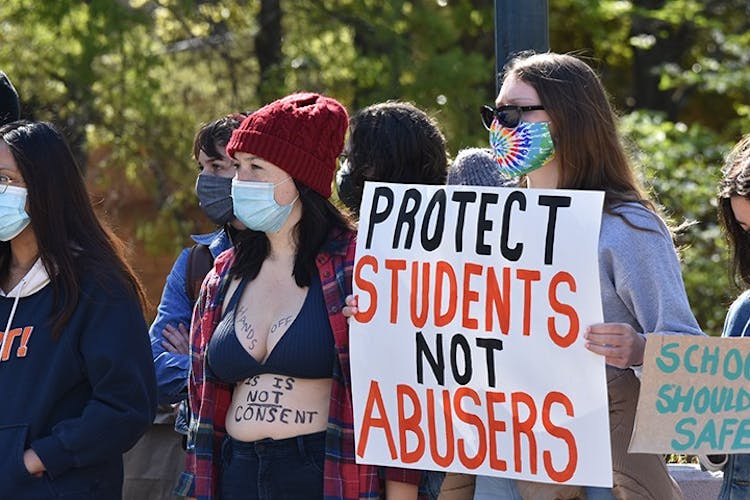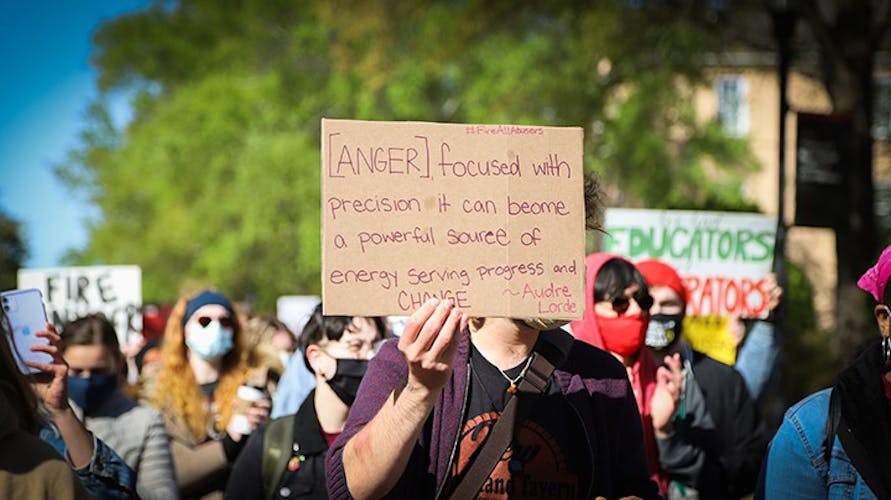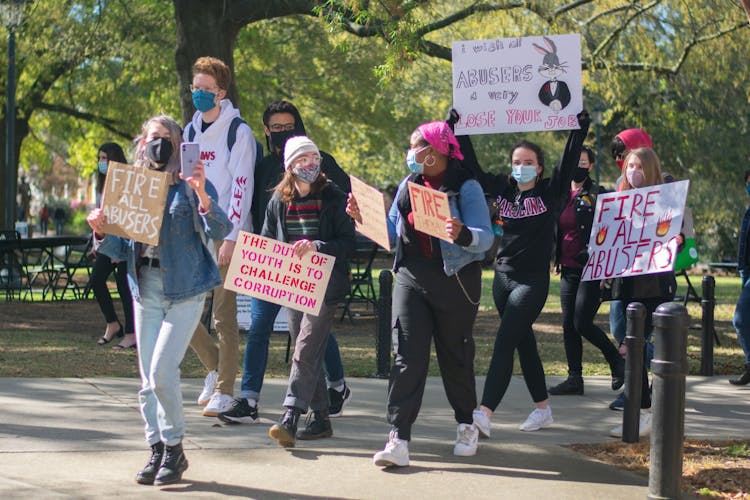A large crowd of students, holding signs and shouting slogans, marched through the USC campus Friday morning, calling for USC to fire professors accused of sexual harassment.
The march, organized by the Coalition to Fire David Voros, started at Longstreet Theater and made stops at Gambrell Hall, the Pickens Street bridge, the president’s house and the Osborne administration building. At each location, a speaker talked about the connection to sexual harassment the locations had.
Third-year geology student Sophie Luna attended the protest as a member of the Feminist Revolutionary Coalition and said she believes victims of abuse should be safe on campus.
“The university has been ignoring our, has been ignoring our demands for months now, and we said what we want. We want to fire the abusers, fire the enablers and reform the EOP system. And what have they done instead? They’ve done some weird little bureaucratic reshuffling, and that’s not what we want,” Luna said.
Fourth-year history and global studies student Lauryn Workman, who is one of the main organizers of the Coalition to Fire David Voros, said she was protesting because she supports survivors and believes the university is in the wrong.
“Last week, I found out that the Faculty Principal of the Living Learning Community that I’m in and a professor that I’ve had twice was accused of sexual assault and grooming and harassment. And that’s unacceptable. And he was putting me in danger. He was putting other students and other faculty members who he worked for and worked with in danger,” Workman said.
As of now, David Voros, David Snyder, Robert Richmond and Mike Dollar have been accused of sexual harassment and all except Dollar have been removed from the classroom. All are still on the university’s payroll.
Fourth-year political science student Darius York, who is also a member of the USC NAACP chapter, said professors should be people students can trust. York, who previously served in Student Government, said he worked with Snyder during his time in Student Government.
“And I’m personally kind of disappointed in some of the names that were given of the professors because these were people I thought were phenomenal people that stood up for things that were important, but I see we don’t know everything about everybody,” York said.
In an email statement released after the protest, university spokesperson Jeff Stensland said USC takes all allegations of sexual harassment seriously and “respects the right of students to make their voices heard on this important issue.”
On March 14, President Caslen announced numerous changes to the university’s response to sexual assault and harassment, including the Title IX taskforce. The taskforce was charged with reviewing the university’s process of responding to allegations of sexual assault and harassment.
Workman said she was not satisfied with this response from Caslen. She said the fact he has not directly acknowledged these allegations or fired the alleged abusers is a problem.
“I think that email was vague on purpose. It didn’t specifically address any of the problems we’ve been calling for. He did not fire any of the people we’ve been asking to fire, and it really is telling that, the week after he sent that email, more allegations came out,” Workman said.

Third-year marketing student Aidan Baker, who also ran for student body president, said he hopes faculty can create “real change” in the wake of the protest. If they don’t, he said, a rift would grow between faculty and students.
“I hope this is a wake up call, if there already hasn’t been one. I hope this is a loud enough rally cry to see this is genuinely a problem that is affecting all of the students, not just the victims, it's affecting all of us as a university and it's affecting all of us as a student body,” Baker said.

